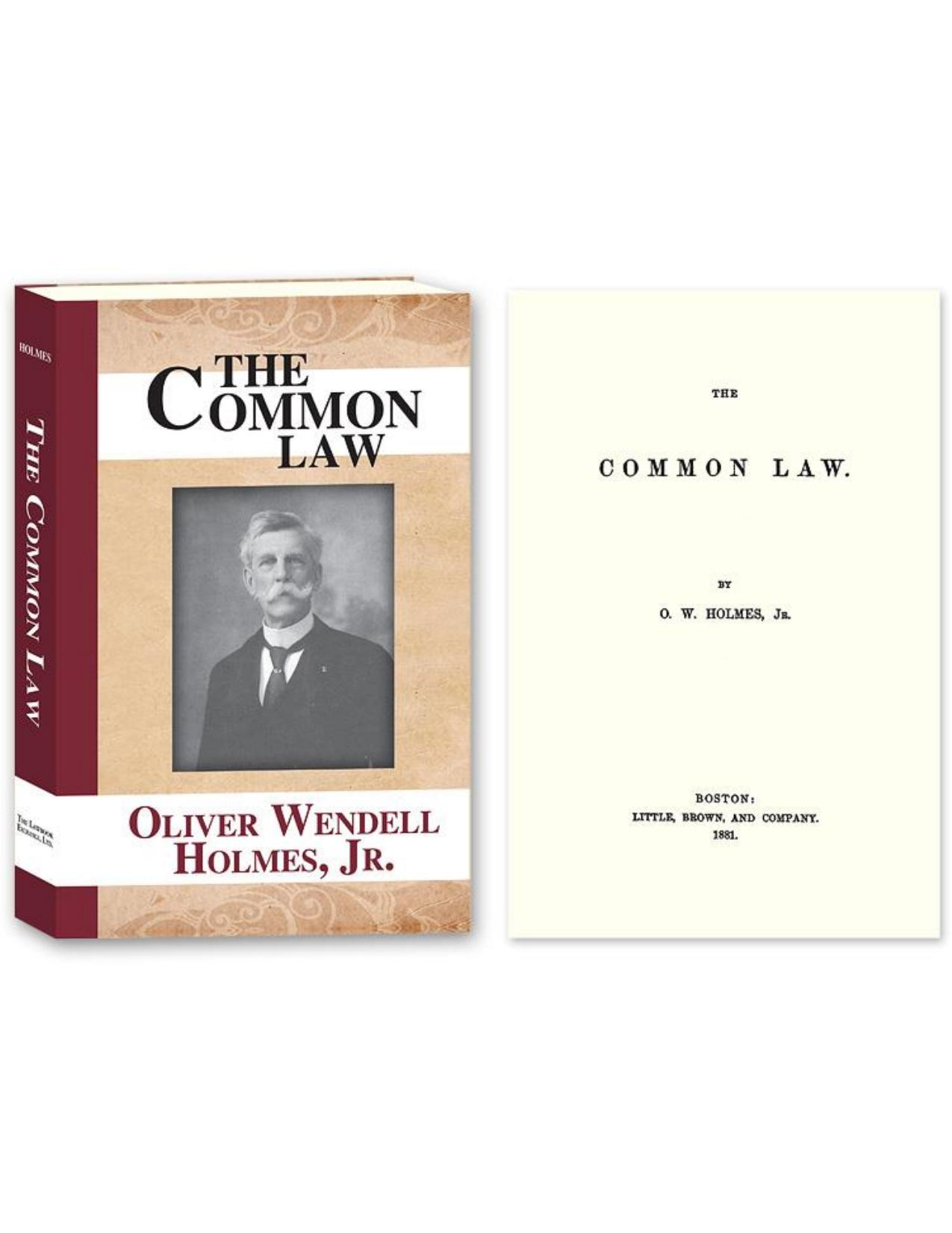The Common Law by Oliver Wendell Holmes

Author:Oliver Wendell Holmes [Holmes, Oliver Wendell]
Language: eng
Format: epub, pdf
ISBN: 9781484800607
Amazon: 1484800605
Publisher: CreateSpace Independent Publishing Platform
Published: 2013-04-23T04:00:00+00:00
[247] LECTURE VII.
CONTRACT. — I. HISTORY.
The doctrine of contract has been so thoroughly remodelled to meet the needs of modern times, that there is less here than elsewhere for historical research. It has been so ably discussed that there is less room here elsewhere for essentially new analysis. But a short of the growth of modern doctrines, whether necessary or not, will at least be interesting, while an analysis of their main characteristics cannot be omitted, and may present some new features.
It is popularly supposed that the oldest forms of contract known to our law are covenant and debt, and they are of early date, no doubt. But there are other contracts still in use which, although they have in some degree put on modern forms, at least suggest the question whether they were not of equally early appearance.
One of these, the promissory oath, is no longer the foundation of any rights in private law. It is used, but as mainly as a solemnity connected with entering upon a public office. The judge swears that he will execute justice according to law, the juryman that he will find his verdict according to law and the evidence, the newly adopted citizen that he will bear true faith and allegiance to the government of his choice.
But there is another contract which plays a more important part. It may, perhaps, sound paradoxical to mention [248] the contract of suretyship. Suretyship, nowadays, is only an accessory obligation, which presupposes a principal undertaking, and which, so far as the nature of the contract goes, is just like any other. But, as has been pointed out by Laferriere, /1/ and very likely by earlier writers, the surety of ancient law was the hostage, and the giving of hostages was by no means confined to international dealings.
In the old metrical romance of Huon of Bordeaux, Huon, having killed the son of Charlemagne, is required by the Emperor to perform various seeming impossibilities as the price of forgiveness. Huon starts upon the task, leaving twelve of his knights as hostages. /2/ He returns successful, but at first the Emperor is made to believe that his orders have been disobeyed. Thereupon Charlemagne cries out, “I summon hither the pledges for Huon. I will hang them, and they shall have no ransom.” /3/ So, when Huon is to fight a duel, by way of establishing the truth or falsehood of a charge against him, each party begins by producing some of his friends as hostages.
When hostages are given for a duel which is to determine the truth or falsehood of an accusation, the transaction is very near to the giving of similar security in the trial of a cause in court. This was in fact the usual course of the Germanic procedure. It will be remembered that the earliest appearance of law was as a substitute for the private feuds between families or clans. But while a defendant who did not peaceably submit to the jurisdiction of the court might
Download
This site does not store any files on its server. We only index and link to content provided by other sites. Please contact the content providers to delete copyright contents if any and email us, we'll remove relevant links or contents immediately.
Every Landlord's Legal Guide by Janet Portman & Stewart Marcia & Ralph Warner(1676)
Philosophy of law a very short introduction by Raymond Wacks(1672)
How Innovation Works by Matt Ridley(1648)
Writing to Win: The Legal Writer by Steven D. Stark(1592)
Drafting Contracts: How and Why Lawyers Do What They Do, Second Edition by Stark Tina L(1499)
Law Man by Shon Hopwood(1445)
Nolo's Essential Guide to Divorce by Emily Doskow(1425)
So You Want to be a Lawyer by Lisa Fairchild Jones Esq(1417)
Profit From Your Idea: How to Make Smart Licensing Deals by Attorney Richard Stim(1348)
Nolo's Encyclopedia of Everyday Law: Answers to Your Most Frequently Asked Legal Questions by Shae Irving & Nolo (Editor)(1334)
Introduction to the study and practice of law in a nutshell by Kenney F. Hegland(1334)
Garner's Modern English Usage by Bryan Garner(1249)
Nolo's Encyclopedia of Everyday Law: Answers to Your Most Frequently Asked Legal Questions by Shae Irving; Nolo (Editor)(1243)
Best Practice by J.A. Armstrong(1203)
Insight Guides Japan (Travel Guide eBook) by Insight Guides(1190)
International Trade and Business: Law, Policy and Ethics by Gabriël Moens & Peter Gillies(1153)
Data Protection: A Practical Guide to UK and EU Law by Carey Peter(1145)
Credit Repair by Loftsgordon Amy(1046)
Everybody's Guide to Small Claims Court by Attorney Ralph Warner (Nolo)(1044)
